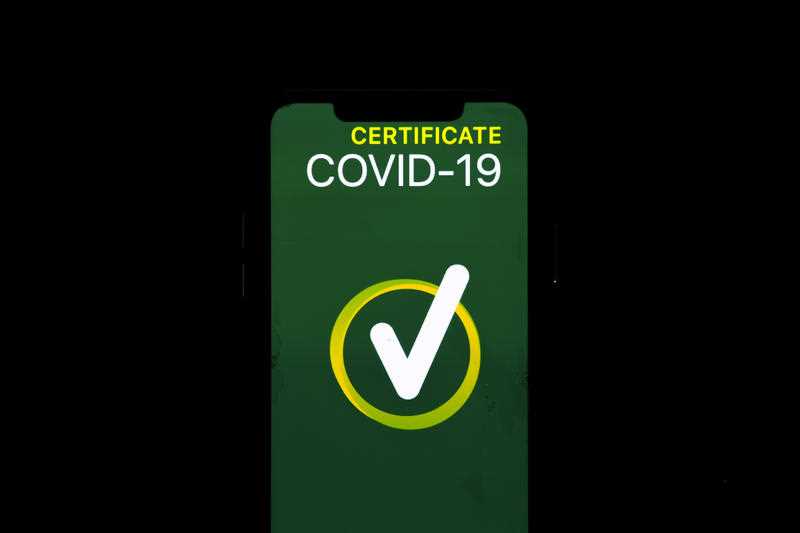
The ACT Human Rights Commission (ACTHRC) has released a paper outlining their position on the quagmire of human rights issues that surround legislating a vaccine passport.
The ACT Human Rights Commission’s Position on Vaccination Passports, released 8 September, said conferring different rights and restrictions on people depending on their vaccination status is a serious step and requires careful consideration of its human rights implications.
Some of the ACTHRC’s recommendations include prior public consultation; criteria for certification and use; clear exemptions, including for structured conscientious objection; external scrutiny and oversight; and a sunset clause, amongst others.
ACTHRC president and commissioner, Dr Helen Watchirs, said vaccine passports must be “expressly regulated by the government” to reduce the risks of unfairness and discrimination.
“Introducing vaccine passports may give some people significant freedoms and encourage greater public vaccine uptake,” she said.
“However, their use may also give rise to human rights and discrimination concerns, particularly in terms of accessing everyday goods and services; for privacy and autonomy; and for freedom of movement and freedom of association.”
Dr Watchirs said it is important vaccine passports are only used in ways that are necessary and proportionate for the legitimate public health reason of controlling COVID-19.
“If used inappropriately, we are concerned that vaccine passports could deepen inequality and discrimination against people who have not yet been vaccinated.”
Associate Professor at the ANU College of Law, Dr Ron Levy, told Canberra Daily there are rights on both sides of the debate that need to be balanced when legislating a vaccine passport.
“The essence of human rights is balancing, really, in almost every case,” Dr Levy said.
“If there’s any sort of mandate for a vaccine, then people are being asked to put a foreign object in their bodies, and that’s the kind of thing that raises an objection to many people.
“But on the other hand, there are public health reasons, there’s the risk of death and disease.”
ACTHRC want a ‘structured’ conscientious objection mechanism

The ACTHRC believes a requirement for vaccination passports for essential settings and services is inappropriate, even for voluntary use.
“In our view, essential settings and services that have been able to stay open throughout the lockdown, including supermarkets, transport, hospitals, etc., should not be permitted to use vaccination passports,” they said.
Regarding when, where, and why one would have to present a vaccine passport, Dr Levy said he believes it is a case-by-case proposition.
“If it’s a situation where there are vulnerable people like an aged-care centre, then you would obviously be on much firmer ground in terms of human rights in asking people to be vaccinated,” he said.
“Is there a way for somebody to get food if there are these widespread vaccine passports? Do we want to exclude somebody who is a conscientious objector from being able to get food?
“Generally speaking, there will be more a question about whether you can be barred from your local Woolies or Coles, that would be a little bit more problematic.”
The ACTHRC is also seeking “appropriate exemptions” for people who aren’t vaccinated due to medical conditions, disabilities, religion or conscientious objection.
They want sufficient flexibility built into the scheme so that people who have a conscientious objection to COVID-19 vaccines and have signed an “informed declination form” are not automatically excluded from participating in society.
Dr Levy said that “relatively”, he’s sympathetic to the ability of conscientious objectors to get out of a vaccine mandate scheme.
“There are reasonable objections to not wanting somebody to stick a needle in your body, that’s the kind of bodily integrity concern, that’s quite reasonable, I think, even though it might be outweighed by public health,” he said.
But Dr Levy advised an “extremely generous conscientious objection scheme” might mitigate the entire rationale behind the vaccine passport scheme in the first place.
“We can’t allow people who are conscientious objectors based on false information to upset the vaccination scheme,” he said.
The ACTHRC has also said legislation establishing a vaccination passport system must include a sunset clause setting out the date and conditions by which it will come to an end.
“The use of vaccination passports should be strictly temporary, and their use should not be permitted to continue beyond the time when the majority of people have been vaccinated or the public health emergency is over,” their position paper stated.
While supportive of such a clause, Dr Levy said given the uncertainty surrounding when the pandemic might end, it has a chance of “undermining the public health response in the future”.
“Basically, in general you would say yes, a sunset clause is a good idea,” he said. “The problem is there is no end in sight to the COVID pandemic.
“You could have a very long sunset clause, like 10 years.”
Get all the latest Canberra news, sport, entertainment, lifestyle, competitions and more delivered straight to your inbox with the Canberra Daily Daily Newsletter. Sign up here.
For more news:


